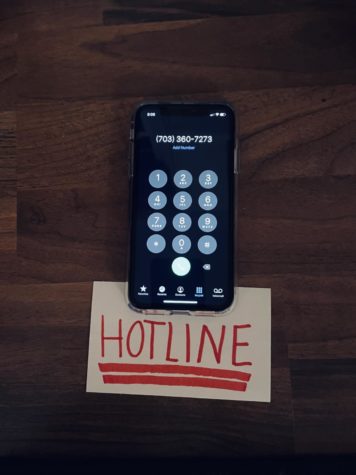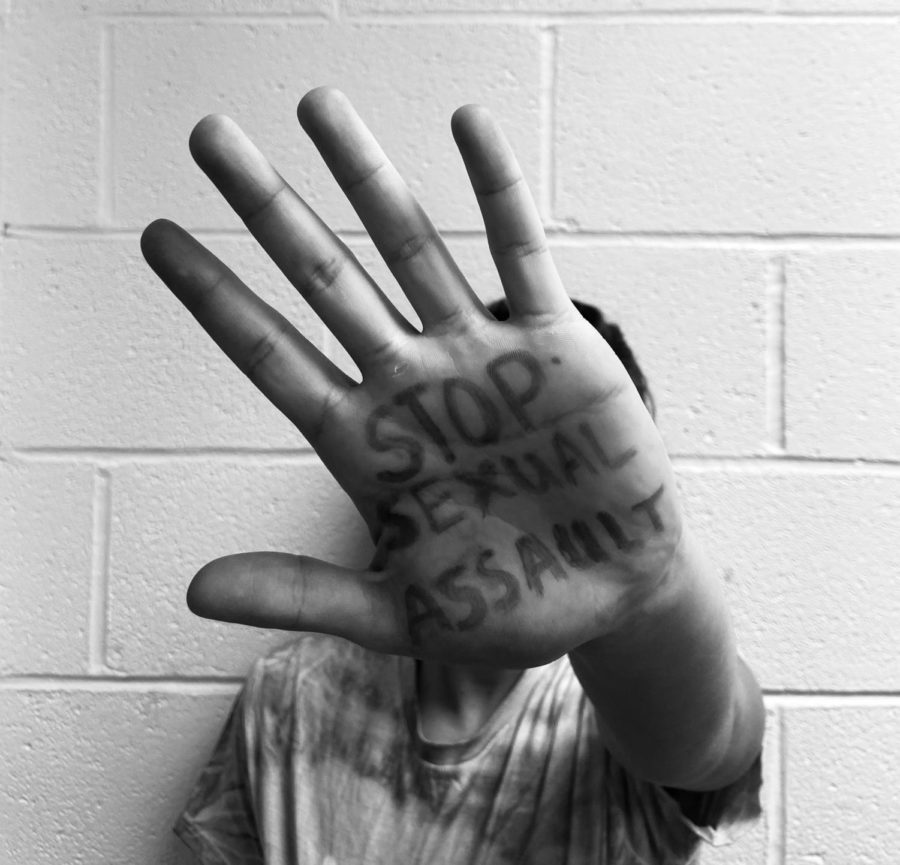How to Identify Signs of Sexual Assault and get Help
It’s important to identify signs of sexual harassment in order to know if you are a victim and if so, how to get help. According to the Fairfax County website, “Sexual violence is any type of unwanted sexual contact, including words and actions of a sexual nature against a person’s will or without their consent, which can be withdrawn at any time during sexual activity.” There are many resources that can provide information and services.
Angela Acosta, a Sexual Violence Outreach Specialist for Domestic and Sexual Violence Services (DVSV), provides outreach to those struggling with sexual violence. In addition, Acosta oversees the Hospital Accompaniment Program by giving survivors support during frenzic exams. Debra Miller, a Fairfax County Youth Education and Outreach Specialist, works to stop violence before it happens. She does this by going around to places like schools, community centers, and youth groups in order to talk about issues like consent, healthy sexuality, dating violence, values, and boundaries, to help kids work towards prevention. Acosta and Miller are just two examples of resources that can provide assistance and information to those who need help with sexual assault.
“Signs can look a lot of different ways for a lot of different people,” said Miller. If drugs or alcohol were used and the victim is not remembering what happened, it may be common to feel pain the next day and get memory back as time goes on, possibly leading them to believe that something may have happened. Nightmares, bruising, and bleeding are also possible signs that assault may have occurred. Miller states that it is always a good idea to seek medical care even if a victim is unsure of what took place. If someone is suddenly more withdrawn from normal activities, personality is off, and/or touch is uncomfortable, it could be an indicator of assault or another traumatic event. “If you think about it, we as human beings, we all respond to trauma differently,” said Acosta. One survivor may be withdrawn and isolated, but on the other hand, another survivor may act normal.
“Consent is huge when it comes to sexual violence. If you say that you don’t want something to happen and that is violated or something is done that’s against your will, that can be sexual violence,” said Acosta. “I know a lot of survivors or have worked with a lot of survivors that say ‘I can’t remember what happened, but I didn’t have my underwear’ or ‘my underwear was inside out’ or ‘my pants were ripped.’”
If someone has confided in you that they have been assaulted, it is important to know how to react. “When a survivor is disclosing to you what has happened to them, believe them. Thank them for trusting you because there are survivors who go days, weeks, years, without disclosing what has happened to them,” said Acosta. Listening, providing support, and the act of patience are some of the best things you can do for them. Make sure not to push them into something they are not ready to do, like seeking professional help. As hard as it may be, it is essential to let them take control of the situation, as they lost control when they were victimized. Offering to do things together like calling the hotline or going to the hospital are good steps to take, but do not force them to do anything they are not comfortable doing. Even if someone tells you about an assault experience in a joking manner, it does not mean it should be taken lightly. In addition, touch can be traumatizing so it is important to respect their space and privacy. “‘What do you need from me?’ or ‘how can I support you?’ are great questions to ask,” said Acosta. The same tips apply if you are not sure if a friend or family member has been assaulted. It is okay to ask them if everything is okay and let them know you are there for them while making sure you are not defining their experience.
Fairfax County’s DSVS division provides resources like the 24 hour hotline, counseling, medical, and legal services. If a person does not wish to disclose their information to receive help, the 24 hour hotline is open to anyone, whether personal information is given or not. Volunteers on the 24 hour hotline act as listeners who can also advise services and resources in the community depending on the individual’s situation. The 24 hour hotline is confidential except for a few circumstances. If it is known that the victim is under the age of 18 and was assaulted by an adult, Child Protective Services would have to be notified. Elder abuse and personal harm or harm against others are factors that would have to be reported, however, callers are always informed of what can be kept confidential and what may have to be reported so they can determine what they are comfortable sharing. “So they can just call and say ‘something happened to me. I think I was sexually assaulted. I want services.’ But they might never give their name or age or any of that information and that is up to them whether or not [they share that] on the hotline,” said Miller.
In order to seek counseling, medical, or legal services, some personal information like name, contact information, and age information are needed. Free short term counseling is offered for survivors and their family members. Depending on age, parental consent may be required for certain services.
“Everyone’s healing journey looks different,” said Miller. It’s ok to feel scared and stuck if you have been violated. Trust after trauma may be challenging, but there are so many resources and services that are meant to help survivors when they’re ready and open to receive it. These services are client driven, meaning it is always at the pace the client wants and they will never be forced to do anything unwanted. “I like to refer to the advocates and all of us at DSVS as GPS’s in a car. So the survivor is the driver and he or she will put in where they want to go and we will help them get there,” said Acosta.
Unfortunately, there is no way to 100 percent guaranteed that a person will not be sexually assaulted, however there are some preventative strategies one can take when out and about to decrease the chances. Making sure you’re in a group of people when at all possible is always a good idea. In addition, someone should always know where you are. The first step to prevention is teaching people not to be assaulters, but rather active bystanders by paying attention to surroundings. “If you see somebody is dragging someone into a room and you’re not really sure what’s going on there, just check in with that person and see if they’re okay,” said Miller. “I wouldn’t put it on the potential survivor to protect themselves, but rather everyone as a whole to look out for each other and respect each other.”
Acosta says that the biggest reaction is your mind. When put into dangerous situations, the most common reaction of the mind is to freeze and not know what to do. Flight is another possible reaction which means you will try to fight the situation in order to get away. Until put into these situations, no one can truly know how they will react as it is out of control. Just because one may know and practice preventative strategies, does not mean that they will respond in the way practiced.

The Fairfax County Police Department takes all reports seriously, including reports of sexual assault. Patrol officers respond to initial sexual assault reports. The timeframe of the crime determines whether a response is needed immediately or up for investigation. If the report requires an immediate response, detectives and victim service advocates will respond to the scene once it is reported. If a report is put up for investigation, a detective will be assigned to the case and multiple resources are provided for the victim which are always there for them throughout the entire process. According to Jason Chandler, Sergeant of the Fairfax County Police Department for the Public Affairs Bureau, “we would like the victims of sexual assault to know they are not alone. Report any unlawful contact to an entrusted adult. Our detectives and victims’ services advocates are here to ensure the available resources are provided to victims to help them heal from such a traumatic experience.”
Sexual assault is not an issue to take lightly. Know that if you have been a victim of any type of assault, you are not alone and there are resources available to you. Even if you have not experienced assault, it is important to be educated on the issue so that if the time comes, you are prepared for yourself or others. “Honor your own boundaries and what you want for yourself and know that there are people who care and who are there to help you when you’re ready,” said Miller. If you are in need of help, call the 24 hour hotline at 703-360-7273 or 911 if it is an emergency.



